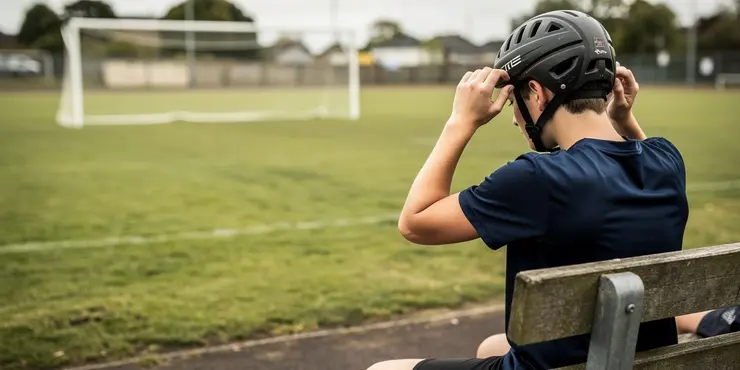
Find Help
More Items From Ergsy search
-
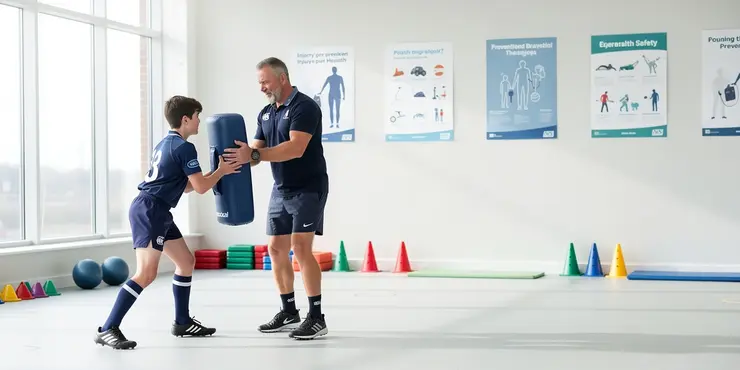
How can concussions be prevented?
Relevance: 100%
-
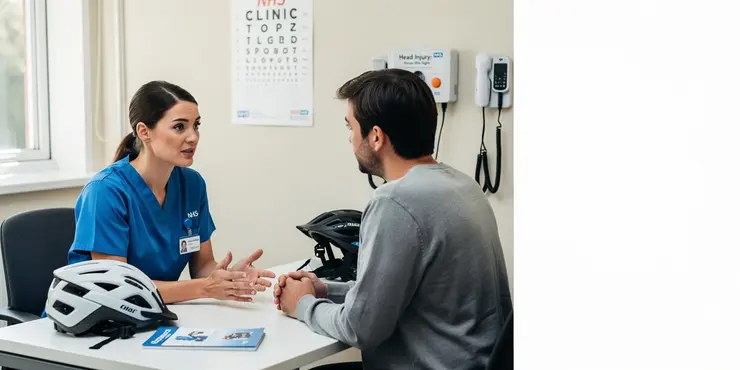
Is there any way to prevent concussions?
Relevance: 100%
-
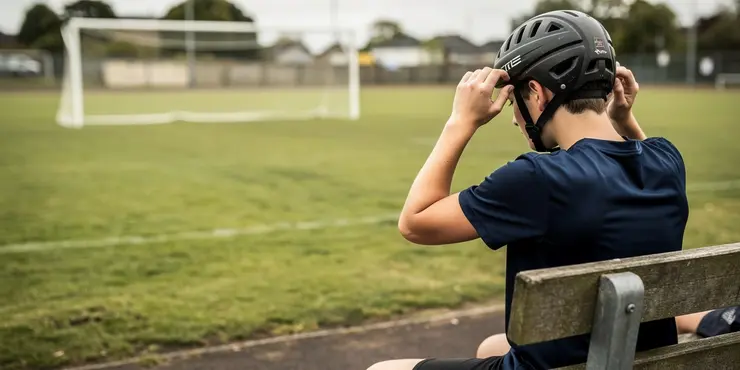
How can concussions be prevented?
Relevance: 100%
-
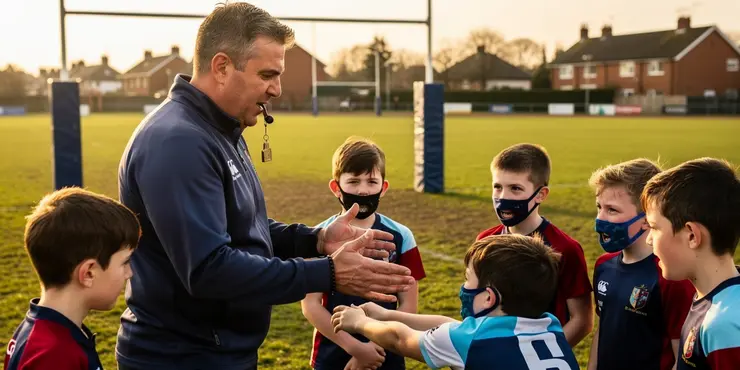
How can concussions be prevented in rugby?
Relevance: 95%
-
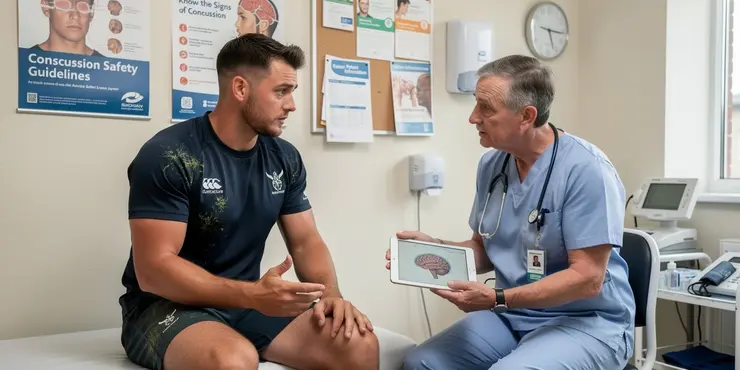
Are helmets required in rugby to prevent concussions?
Relevance: 95%
-
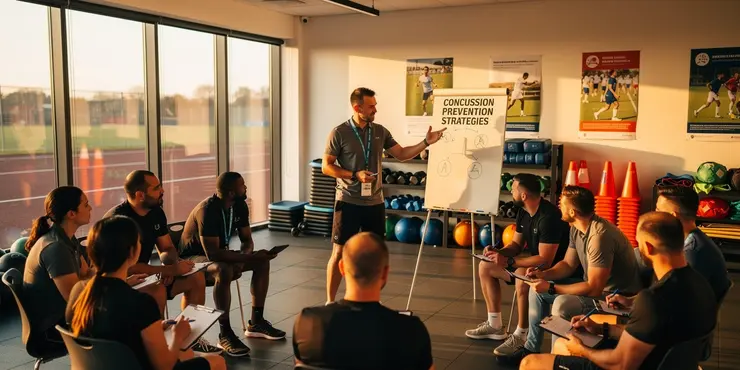
Is training available for coaches to help prevent concussions?
Relevance: 92%
-
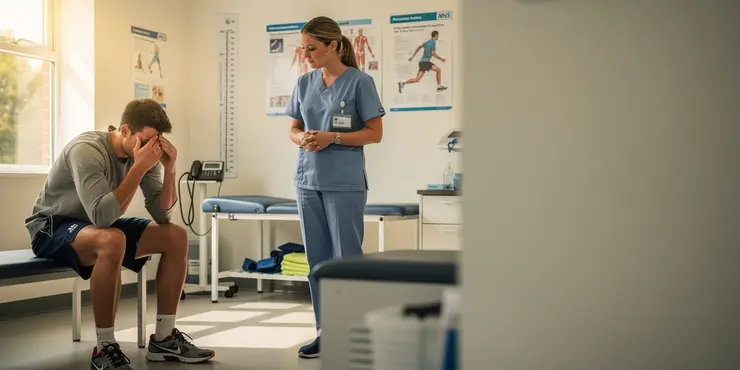
What is Concussion?
Relevance: 83%
-
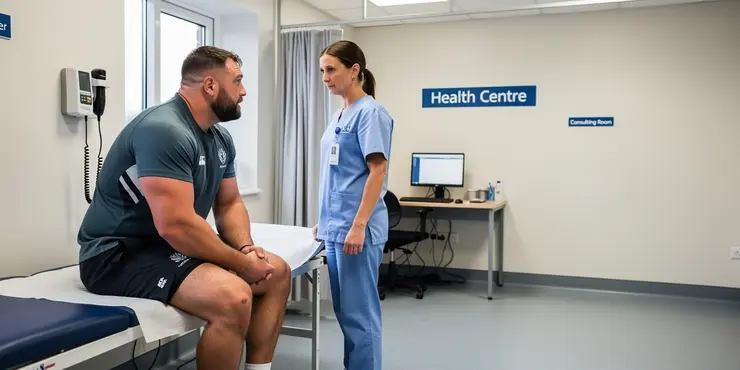
Are Concussions common in Rugby?
Relevance: 79%
-
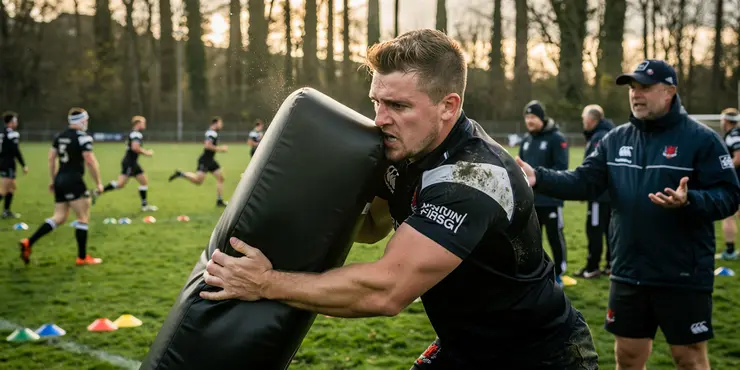
What causes concussions in rugby?
Relevance: 76%
-
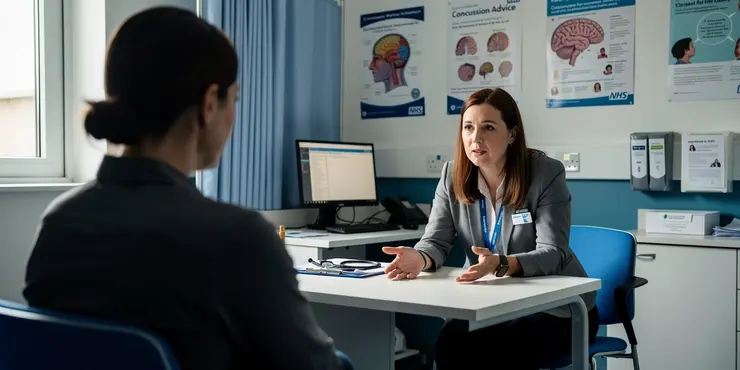
How is a concussion diagnosed?
Relevance: 75%
-
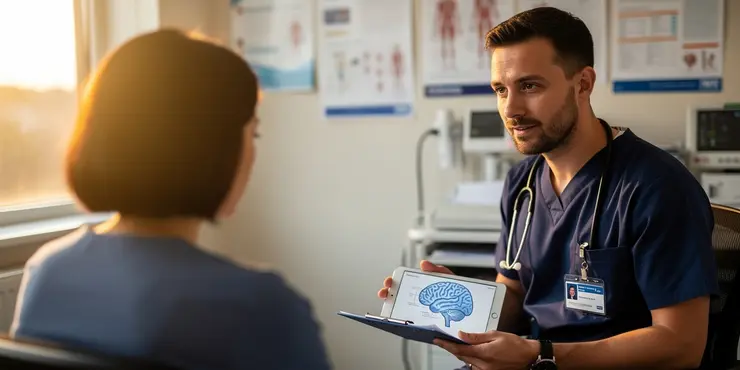
Is headache a symptom of a concussion?
Relevance: 75%
-
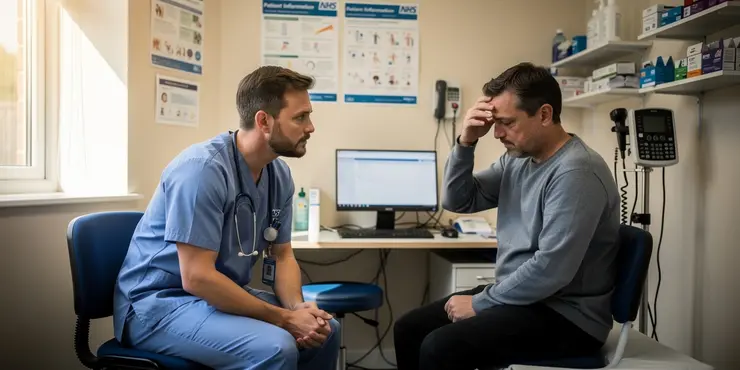
How is a concussion diagnosed?
Relevance: 73%
-
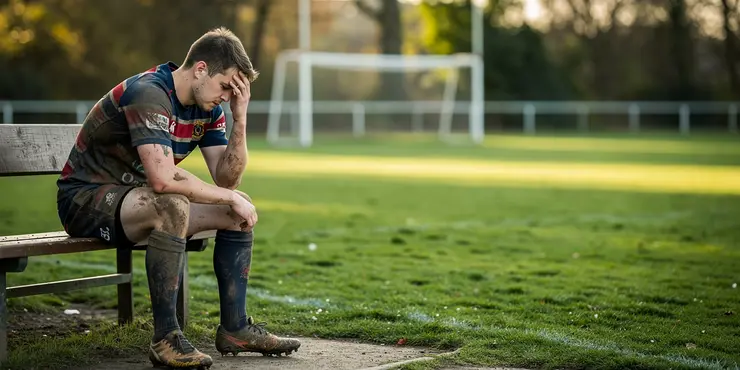
Can playing sports increase the risk of a concussion?
Relevance: 72%
-
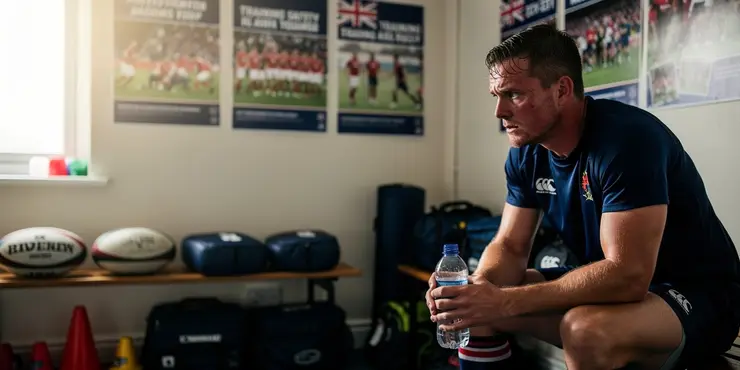
Is there a protocol for managing concussions in rugby?
Relevance: 71%
-
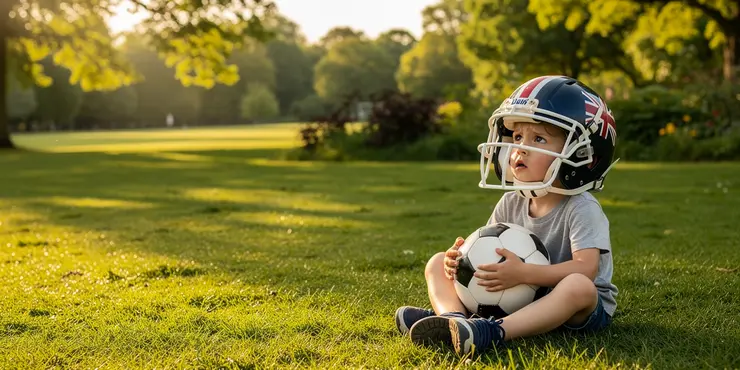
Are children more susceptible to concussions than adults?
Relevance: 71%
-
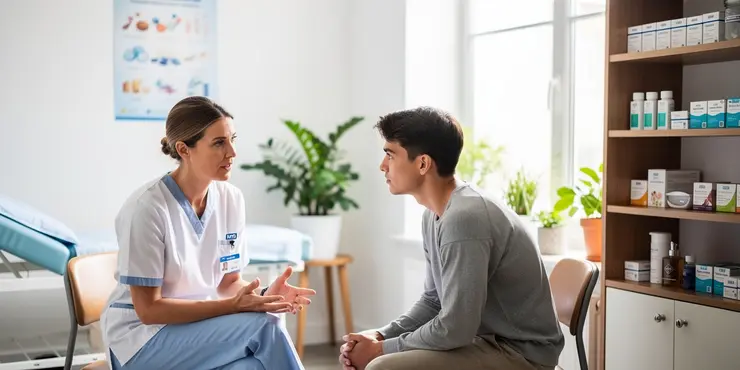
Can concussions lead to mental health issues?
Relevance: 71%
-

Can a concussion cause memory problems?
Relevance: 71%
-
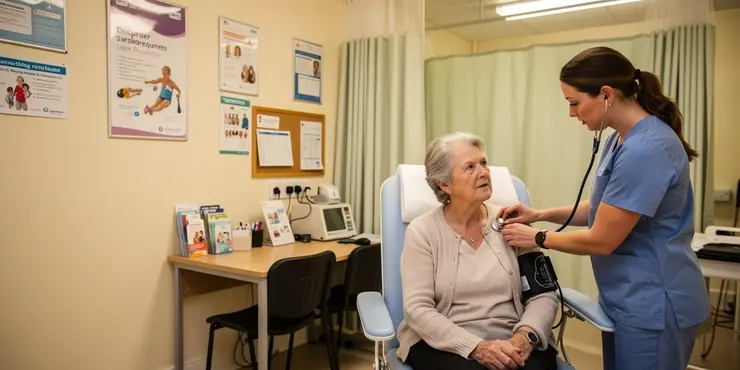
Is it safe to sleep after a concussion?
Relevance: 71%
-
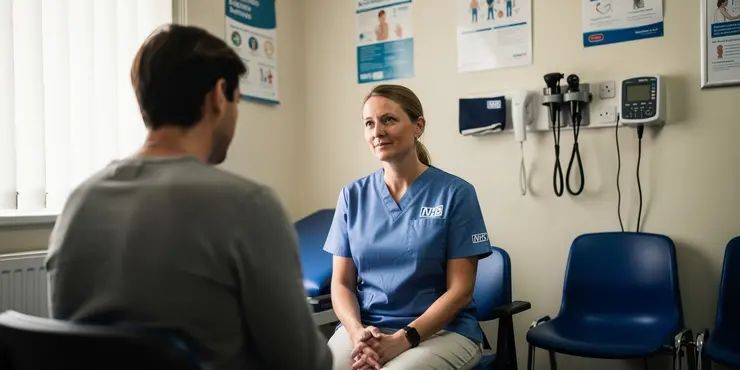
What are common symptoms of a concussion?
Relevance: 70%
-
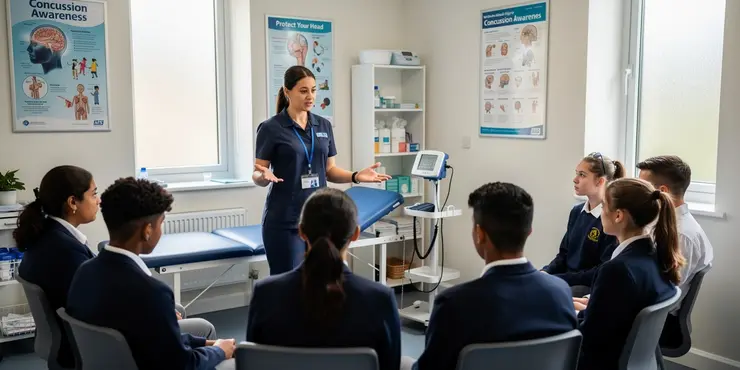
What role do schools play in managing concussions?
Relevance: 70%
-
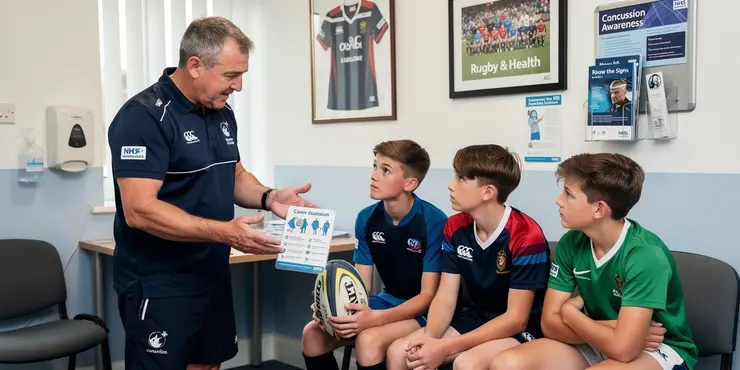
Is there a difference in concussion rates between amateur and professional rugby?
Relevance: 70%
-
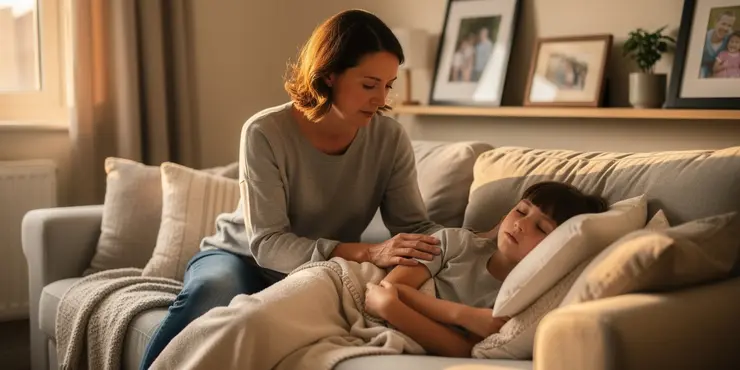
Is it safe to sleep after a concussion?
Relevance: 69%
-
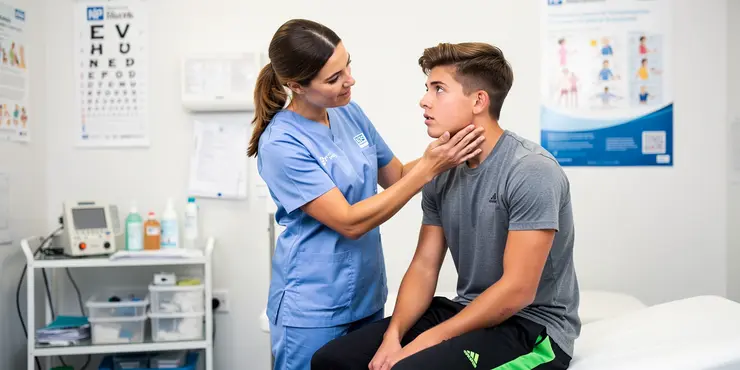
Can concussions occur without a direct blow to the head?
Relevance: 67%
-
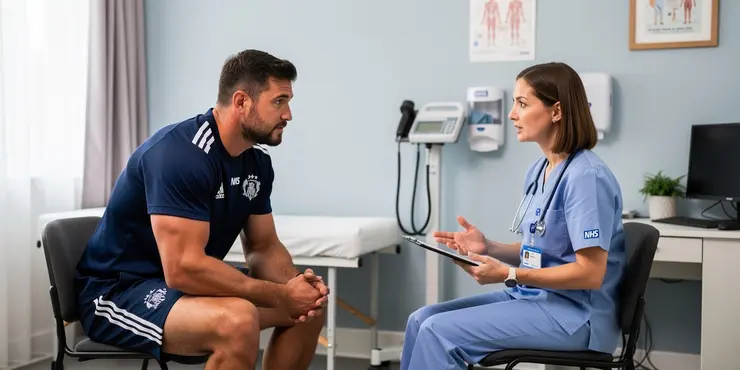
How do concussions impact long-term health in rugby players?
Relevance: 67%
-
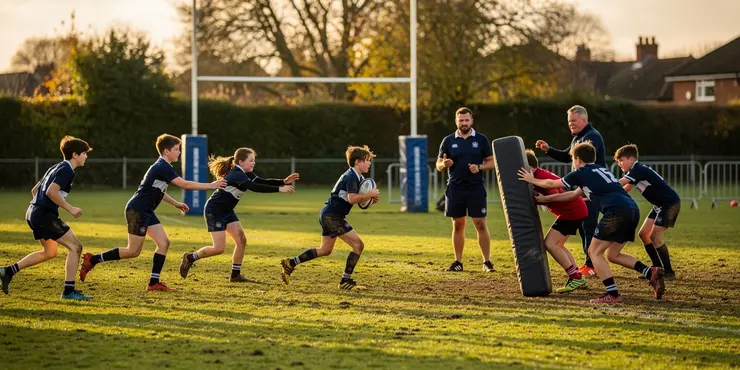
What age groups are most at risk for concussions in rugby?
Relevance: 66%
-
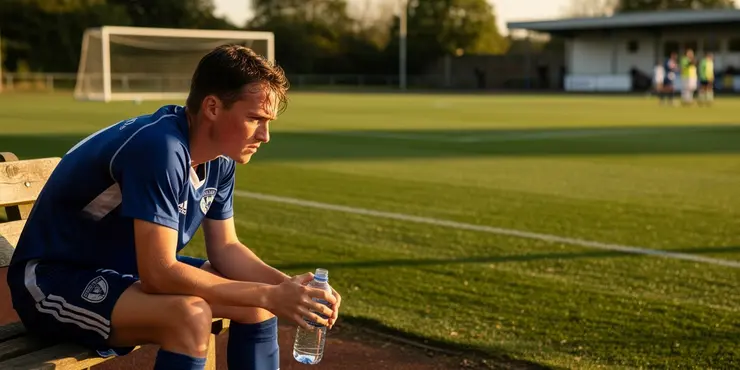
Can players return to play on the same day after a suspected concussion?
Relevance: 66%
-
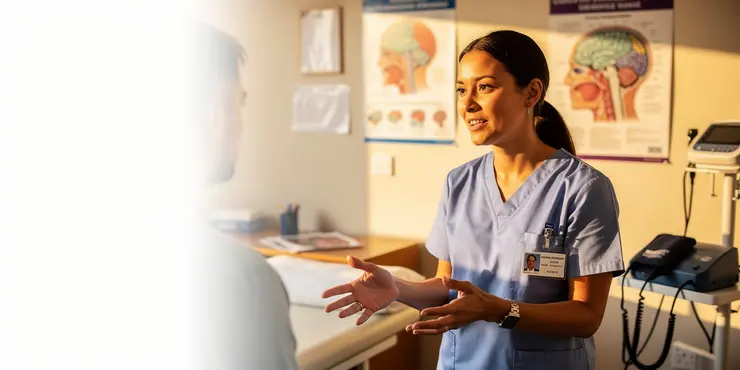
When is it safe to return to normal activities after a concussion?
Relevance: 65%
-
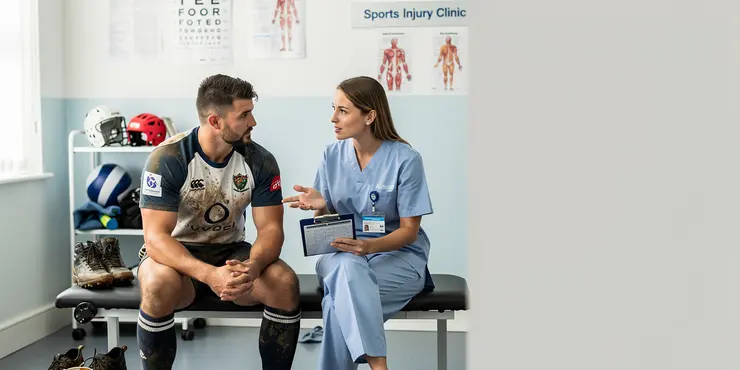
What support is available for rugby players who suffer concussions?
Relevance: 65%
-
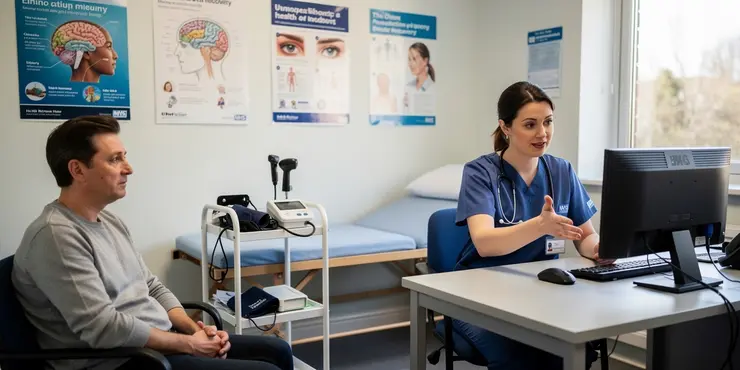
Should people with a concussion avoid screens and technology?
Relevance: 65%
-
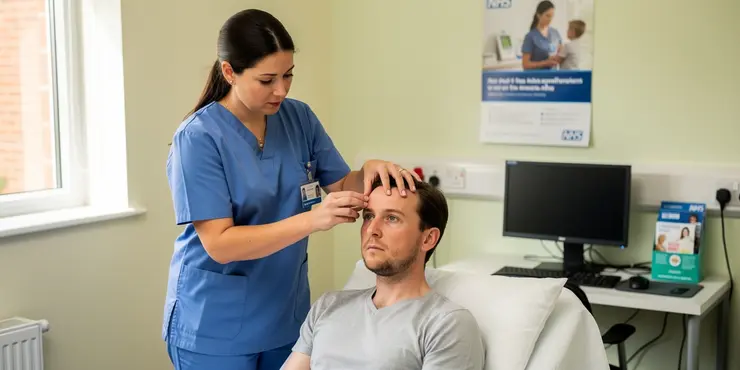
What immediate steps should be taken if someone has a concussion?
Relevance: 63%
-

When is it safe to return to normal activities after a concussion?
Relevance: 61%
-
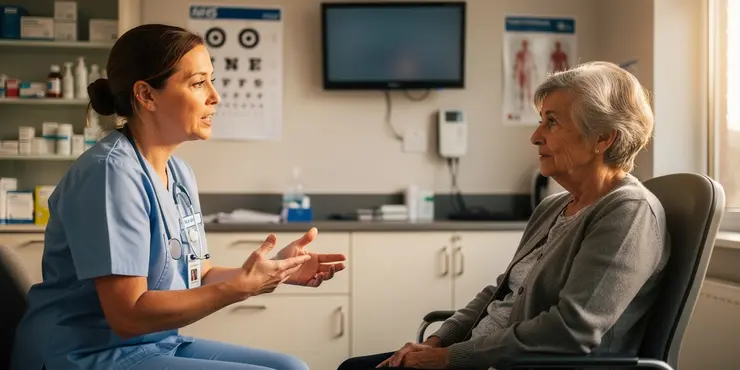
Can hypotony be prevented?
Relevance: 31%
-
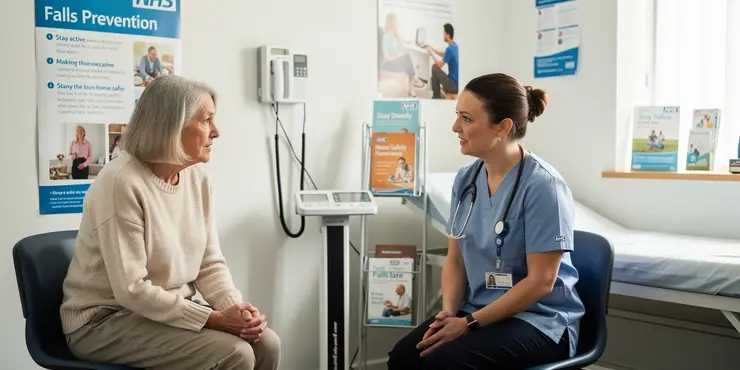
Falls Prevention Podcast
Relevance: 31%
-
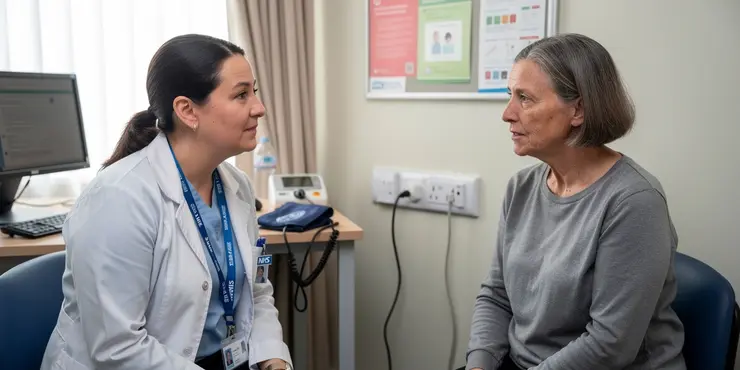
Can CFS be prevented?
Relevance: 31%
-

Can meningitis be prevented?
Relevance: 31%
-

Can gonorrhoea be prevented?
Relevance: 31%
-
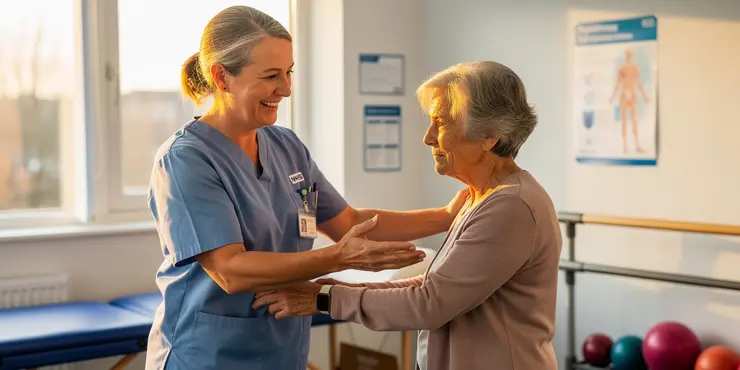
Falls and Falls Prevention
Relevance: 31%
-
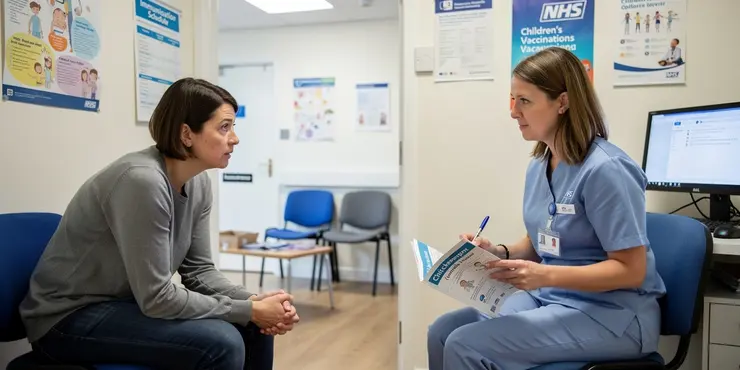
Can chickenpox be prevented?
Relevance: 31%
-

Can Rubella be prevented?
Relevance: 31%
-
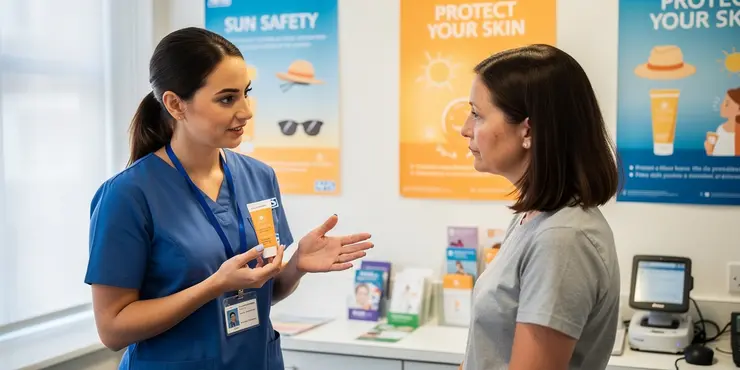
Can sunburn be prevented?
Relevance: 31%
How Can Concussions Be Prevented?
Understanding Concussions
Concussions are traumatic brain injuries that can have significant health impacts. They are caused by a blow or jolt to the head, leading to brain movement within the skull. Understanding the symptoms and risks associated with concussions is crucial for their prevention and management. Symptoms can include headaches, dizziness, confusion, and memory loss.Promoting Safety in Sports
To reduce concussion risk in sports, appropriate protective gear, such as helmets, should be used. Helmets should meet safety standards and fit properly. Educating athletes, coaches, and parents about the risks of concussions and the importance of reporting symptoms is vital. Rule modifications and enforcement, such as the elimination of dangerous tackles in rugby, also aid in minimizing injury risks.Home and School Safety Measures
Creating a safe environment at home and in schools is fundamental. Stairs, bathrooms, and other potential hazard areas should have appropriate safety measures, such as railings and non-slip mats. Teachers and parents should supervise and ensure that children understand the importance of safety in playgrounds and at home.Improving Road Safety
Road safety is paramount in preventing concussions related to vehicular accidents. Use of seatbelts, appropriate child seats, and helmets for cyclists can significantly reduce risks. Adhering to road safety rules and staying alert minimizes accidents, effectively preventing head injuries.Education and Awareness
Raising awareness about concussion symptoms and their seriousness encourages timely medical attention and appropriate action. Educational programs in schools and communities can be implemented to establish a culture of safety and caution. Public health campaigns can further disseminate information on concussion prevention strategies.Technology and Innovation
Advancements in technology contribute to concussion prevention. Innovative materials and designs in protective gear enhance safety in sports and daily activities. Continued research and development are essential for better prevention techniques. Integrating technology, such as impact sensors, can help in immediate detection and response to potential concussions. Fostering a proactive approach to safety and awareness, both individually and as a community, is key to effectively preventing concussions.How Can We Stop Concussions?
What Are Concussions?
Concussions happen when your brain gets hurt. This is usually because your head gets hit or shaken. It can make you feel sick with headaches, dizziness, confusion, or even forget things. Knowing about them helps us stop them from happening.Staying Safe in Sports
To help keep safe, wear the right gear like helmets when playing sports. Helmets should fit well and be safe. Coaches, parents, and kids should know about the risks of concussions. It's important to tell someone if you feel sick. Changing rules, like stopping rough play, helps too.Keeping Home and School Safe
Keep places like stairs and bathrooms safe with railings and mats that stop slipping. Parents and teachers should watch kids and teach them about being safe at home and on the playground.Being Careful on the Road
Wearing seatbelts in cars and helmets on bikes can protect your head. Following road rules and paying attention when driving or walking near roads can stop accidents that might hurt your head.Learning and Awareness
Learning about concussions means we can get help quickly if needed. Schools and communities can teach safety so everyone knows how to stay safe. Health campaigns can help spread the word about how to stop concussions.Using New Technology
New inventions help keep us safer. Better helmets and gear can protect your head while playing or in daily life. Research helps find new ways to prevent head injuries. Some new helmets have sensors that warn you if you might have a concussion. Being careful and learning how to stay safe alone and with others helps stop concussions.Frequently Asked Questions
What are some basic steps to prevent concussions in sports?
To prevent concussions in sports, ensure athletes wear appropriate protective gear, follow sport-specific safety rules, use proper techniques, and encourage a culture of safety and mutual respect on the field.
How does helmet use contribute to concussion prevention?
While helmets can't completely prevent concussions, they can significantly reduce the severity of head impacts and are essential for sports like cycling, rugby, and equestrian events.
Are mouthguards effective in preventing concussions?
Although mouthguards protect against dental injuries, there isn't conclusive evidence that they prevent concussions. However, they can help absorb some impacts.
Can proper training and technique reduce concussion risk?
Yes, athletes trained in proper techniques and body positioning, such as tackling in rugby, are at reduced risk of head injuries.
What role do coaches play in concussion prevention?
Coaches have a critical role in concussion prevention by enforcing safety rules, ensuring proper gear is used, and promoting a culture where safety is prioritised over winning.
How can rule changes in sports reduce concussion incidents?
Implementing and enforcing rules such as restrictions on high-impact tackles, and penalties for dangerous plays, can help reduce concussion incidence.
Why is education important in concussion prevention?
Education is crucial for raising awareness about concussion symptoms, risks, and prevention strategies among athletes, coaches, and parents.
Can improving neck strength prevent concussions?
Strengthening neck muscles can mitigate the forces experienced during an impact, potentially reducing concussion risk.
What safety measures are recommended for children in contact sports?
For children, ensure they have age-appropriate gear, training, and oversight, and that sports organisations emphasise safety in their programmes.
How does limiting headers in football help prevent concussions?
Limiting headers, especially in youth football, reduces exposure to repeated head impacts, thereby lowering concussion risk.
Are there specific warm-up exercises that can help in preventing concussions?
Dynamic warm-up exercises, focusing on agility, balance, and coordination, can help athletes better control their movements and avoid unsafe actions that could lead to concussions.
What is the importance of resting after a concussion?
Rest is critical as it allows the brain time to heal, reduces the risk of further injury, and helps avoid complications from returning to activities too soon.
How does regular health assessment contribute to concussion prevention?
Regular health assessments can identify predisposing factors for concussions and ensure any baseline testing, like cognitive assessments, is up-to-date to manage and monitor any incidents effectively.
Why is it essential to report concussion symptoms immediately?
Immediate reporting of symptoms ensures quick assessment and treatment, preventing potential worsening of the injury and long-term complications.
How can tournaments and leagues enhance safety protocols to prevent concussions?
Leagues and tournaments can enhance safety by maintaining strict adherence to concussion protocols, providing training for all stakeholders, and ensuring that health assessments are conducted regularly.
How can you stop getting hurt in the head when playing sports?
Here are some simple ways to stay safe:
- Wear a helmet: Always wear the right helmet for your sport. Helmets keep your head safe.
- Play by the rules: Follow the rules of the game to stay safe.
- Practice good sportsmanship: Be kind and respectful to others. Don't play rough.
- Use good techniques: Learn the right way to move and play in your sport.
- Stay strong and fit: Exercise to keep your body strong. Strong muscles protect you.
- Rest: Make sure to rest if you feel tired or hurt. Rest helps you heal.
Help tools: Try reading out loud with a helper, or use picture cards to remember these steps.
To stop head injuries in sports, make sure players wear the right safety gear. Follow the rules for the game. Use the right skills and moves. Encourage kids to play safely and be kind to each other.
How do helmets help stop head injuries?
Helmets are hard hats for your head. They keep your head safe when you fall or bump into something. This helps keep your brain safe. Here is how helmets help: - **Cushioning**: Helmets have soft padding inside to absorb the shock. - **Strong Shell**: The outside is hard to protect from hits. - **Fit Well**: They need to fit right so they don't move around. You can ask an adult to help you put on a helmet. Remember to always wear a helmet when you ride a bike or play sports.Helmets can't stop all head injuries, but they help to make hits to the head less bad. Helmets are very important for sports like biking, rugby, and horse riding.
Do mouthguards help stop concussions?
Mouthguards are soft pieces people wear in their mouths to protect their teeth. Some people wonder if they also help stop concussions.
A concussion is a type of head injury. It happens when the brain gets shaken inside the skull.
Wearing a mouthguard can help protect teeth and jaws. Some people think it might also help protect the head. But, mouthguards might not stop all concussions.
Doctors and scientists are still studying this. They want to know more if mouthguards can keep the brain safe, too.
Support Tip: To learn more, you can talk to a dentist or a doctor. They can give good advice about using mouthguards.
Mouthguards help keep your teeth safe from getting hurt. We don’t know for sure if they stop head injuries. But they can help soften some bumps.
Can learning how to play safely help prevent head injuries?
Learning how to play sports the right way might stop head injuries. Here are some ways to stay safe:
- Wear a helmet when you need one.
- Learn the right moves from a coach or teacher.
- Practice how to fall safely.
- Play by the rules.
Ask for help if you have questions. Playing safely can help keep you from getting hurt.
Yes, athletes who learn the right way to move and play, like tackling in rugby, are less likely to hurt their heads.
How do coaches help stop concussions?
Coaches have an important job to stop concussions. They do this by making sure players follow safety rules, use the right gear, and understand that being safe is more important than winning.
How can changing rules in sports help stop concussions?
Sports can sometimes be dangerous. Players can get hurt. One way to stop injuries like concussions is to change the rules.
A concussion is when someone hurts their head really badly. It is important to be safe. New rules can help keep players safe.
Here are some ideas that can help:
- Wear a helmet. Helmets protect your head.
- Make rules that are fair and safe for everyone.
- Train players to play carefully and avoid hitting heads.
- Have more breaks so players can rest and avoid being too tired.
Using simple language and showing pictures can also help people understand better.
We can make sports safer by having clear rules. For example, we can stop rough tackles and give penalties for dangerous plays. This can help prevent head injuries.
Why is learning important to stop head injuries?
Learning about concussions helps keep us safe. It teaches us how to play and stay safe. Here are some ways learning helps:
- We learn how to wear helmets correctly.
- We know when to stop playing if we get hurt.
- We learn to tell an adult if we hit our head.
- We learn exercises to make us stronger.
Reading books or watching videos can help us understand more. Talking to teachers or coaches is also a good idea. They can help us stay safe and learn fun ways to protect our heads.
Learning is important. It helps athletes, coaches, and parents know about concussion signs, dangers, and how to avoid them.
Can getting a stronger neck stop head injuries?
Making your neck muscles stronger can help protect your head. This might lower the chances of getting a concussion if you have an accident.
How can kids stay safe when playing contact sports?
When kids play sports where people touch or hit each other, it's important for them to stay safe. Here are some tips:
- Wear the right gear: Use helmets, pads, and mouthguards to protect your head and body.
- Follow the rules: Rules are there to keep everyone safe, so make sure you know them.
- Listen to coaches: Coaches can teach you how to play safely. Pay attention to what they say.
- Tell someone if you get hurt: If you feel pain or get injured, tell an adult right away.
Remember, staying safe means you can have more fun playing your sport!
For kids, make sure they have the right clothes and tools for their age. They should also have good training and be watched by an adult. Sports groups should focus on keeping everyone safe in their activities.
How does stopping hitting the ball with your head in football help avoid head injuries?
Stopping kids from hitting the ball with their heads in football can keep them safer. It means they won't hurt their heads as much and won't get as many concussions.
What warm-up exercises can help stop concussions?
Doing exercises to warm up is good. These exercises help you be quick, steady, and move well. They help you move your body the right way and not get hurt in the head.
Why is it important to rest after a concussion?
Resting helps the brain heal after a concussion. If you rest, your brain can get better. It is important to take breaks and avoid hard activities. You can also use relaxing tools like listening to calm music or taking deep breaths to help.
Rest is really important. It gives your brain time to get better. Rest also stops more injuries from happening. If you rest, you won't have problems from doing things too soon.
Here are some things that might help:
- Make a quiet and calm space to rest.
- Use soft, low light. Bright lights can be hard on your brain.
- Set a regular sleep schedule, going to bed and waking up at the same time every day.
- Limit screen time, like phones and TVs, to give your brain a break.
How do regular health check-ups help stop concussions?
Having regular health check-ups is important. They can help doctors find out if you might get hurt easily, like having a concussion.
Doctors can give advice on how to stay safe. They can teach you ways to protect your head.
It is also good to wear safety gear, like helmets, when playing sports or riding bikes. This can help keep your head safe from getting hurt.
Ask a parent or a teacher to help you if you have more questions. There are also apps and tools that can read aloud and explain things in a way that’s easy to understand.
Seeing the doctor often can help find things that might cause a concussion. It also makes sure tests, like brain tests, are current. This helps in taking care of and watching any bumps to the head.
Why should you tell someone right away if you think you have a concussion?
If you hurt your head and feel dizzy or confused, it's important to tell an adult. This could be a parent, teacher, or doctor.
Here are some reasons why it's important:
- Get help fast: Telling someone means you can see a doctor who can help you feel better quickly.
- Stay safe: A doctor can check to make sure your brain is okay.
- Feel better sooner: The sooner you get help, the faster you can start to heal and go back to doing the things you love.
To help you remember:
- Use a note or reminder on your phone to let someone know if you feel funny after bumping your head.
- Talk with your friends about staying safe when playing sports.
If you tell someone about your symptoms right away, doctors can check and treat you quickly. This helps stop the injury from getting worse and stops future problems.
How can sports competitions make rules to keep players safe from head injuries?
Sports competitions, like tournaments and leagues, can make rules to help keep players safe from head injuries called concussions. Here are some ways they can do this:
- Make sure players wear the right safety gear like helmets.
- Teach players and coaches how to play safely.
- Have special people to check if players are hurt.
- If a player has a head injury, make sure they rest before playing again.
- Use new tools or apps that help keep players safe.
It's important for everyone to work together to make games safer. Doing these things helps protect players and keeps the games fun and safe for everyone.
Leagues and tournaments can keep people safe by following the rules about concussions very carefully. They should teach everyone involved what to do. They should also check everyone's health often.
Useful Links
This website offers general information and is not a substitute for professional advice.
Always seek guidance from qualified professionals.
If you have any medical concerns or need urgent help, contact a healthcare professional or emergency services immediately.
Some of this content was generated with AI assistance. We’ve done our best to keep it accurate, helpful, and human-friendly.
- Ergsy carfully checks the information in the videos we provide here.
- Videos shown by Youtube after a video has completed, have NOT been reviewed by ERGSY.
- To view, click the arrow in centre of video.
- Most of the videos you find here will have subtitles and/or closed captions available.
- You may need to turn these on, and choose your preferred language.
- Go to the video you'd like to watch.
- If closed captions (CC) are available, settings will be visible on the bottom right of the video player.
- To turn on Captions, click settings .
- To turn off Captions, click settings again.
More Items From Ergsy search
-

How can concussions be prevented?
Relevance: 100%
-

Is there any way to prevent concussions?
Relevance: 100%
-

How can concussions be prevented?
Relevance: 100%
-

How can concussions be prevented in rugby?
Relevance: 95%
-

Are helmets required in rugby to prevent concussions?
Relevance: 95%
-

Is training available for coaches to help prevent concussions?
Relevance: 92%
-

What is Concussion?
Relevance: 83%
-

Are Concussions common in Rugby?
Relevance: 79%
-

What causes concussions in rugby?
Relevance: 76%
-

How is a concussion diagnosed?
Relevance: 75%
-

Is headache a symptom of a concussion?
Relevance: 75%
-

How is a concussion diagnosed?
Relevance: 73%
-

Can playing sports increase the risk of a concussion?
Relevance: 72%
-

Is there a protocol for managing concussions in rugby?
Relevance: 71%
-

Are children more susceptible to concussions than adults?
Relevance: 71%
-

Can concussions lead to mental health issues?
Relevance: 71%
-

Can a concussion cause memory problems?
Relevance: 71%
-

Is it safe to sleep after a concussion?
Relevance: 71%
-

What are common symptoms of a concussion?
Relevance: 70%
-

What role do schools play in managing concussions?
Relevance: 70%
-

Is there a difference in concussion rates between amateur and professional rugby?
Relevance: 70%
-

Is it safe to sleep after a concussion?
Relevance: 69%
-

Can concussions occur without a direct blow to the head?
Relevance: 67%
-

How do concussions impact long-term health in rugby players?
Relevance: 67%
-

What age groups are most at risk for concussions in rugby?
Relevance: 66%
-

Can players return to play on the same day after a suspected concussion?
Relevance: 66%
-

When is it safe to return to normal activities after a concussion?
Relevance: 65%
-

What support is available for rugby players who suffer concussions?
Relevance: 65%
-

Should people with a concussion avoid screens and technology?
Relevance: 65%
-

What immediate steps should be taken if someone has a concussion?
Relevance: 63%
-

When is it safe to return to normal activities after a concussion?
Relevance: 61%
-

Can hypotony be prevented?
Relevance: 31%
-

Falls Prevention Podcast
Relevance: 31%
-

Can CFS be prevented?
Relevance: 31%
-

Can meningitis be prevented?
Relevance: 31%
-

Can gonorrhoea be prevented?
Relevance: 31%
-

Falls and Falls Prevention
Relevance: 31%
-

Can chickenpox be prevented?
Relevance: 31%
-

Can Rubella be prevented?
Relevance: 31%
-

Can sunburn be prevented?
Relevance: 31%


